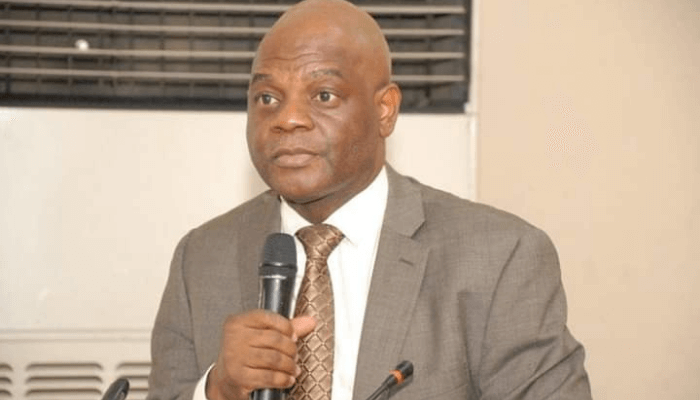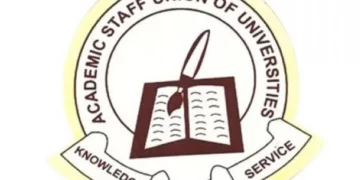In a move to streamline the delivery and impact of educational interventions, the Tertiary Education Trust Fund (TETFund) convened a two-day strategic workshop aimed at empowering directors of physical planning, academic planning, and ICT across Nigerian tertiary institutions.
The event, held in Abuja recently, brought together key institutional leaders tasked with the planning and execution of TETFund interventions, a critical step toward transforming Nigeria’s higher education landscape.
The workshop served not just as a routine meeting but as a strategic convergence designed to address long-standing implementation bottlenecks, strengthen compliance with TETFund’s processes, and foster a culture of accountability.
In his welcome address, the Executive Secretary of TETFund, Arc. Sonny S.T. Echono, said the gathering was a vital platform for institutional engagement and knowledge exchange.
“Our aim is to ensure that every institution represented here is well equipped to align more effectively with the Fund’s operational procedures for greater efficiency, accountability, and developmental impact.”
The workshop came at a time Nigeria’s tertiary education sector is grappling with issues ranging from underfunding to infrastructure decay and capacity gaps, which underscored the urgency of aligning institutional operations with evolving national priorities and global best practices.
Echono added; “Let me be clear. This workshop is a call to action. It is a forum for reflection, alignment, and strategic repositioning.
“This engagement is more than a routine meeting; it is a strategic convergence designed to address recurring implementation bottlenecks, improve compliance, and enhance institutional performance.
“It is our collective responsibility to ensure that the gains from TETFund interventions are not only sustained but amplified through timely and judicious utilization of resources.”
Participants were sensitised on updates to the TETFund Intervention Guidelines, including shifts in funding priorities and project requirements for the 2025 intervention cycle, aimed at eliminating ambiguity in the fund disbursement and utilisation processes, while also encouraging innovation and timely delivery.
One of the headline announcements at the workshop was the Fund’s decision to suspend the foreign training component of the TETFund Scholarship for Academic Staff (TSAS) that started January 1, 2025.
“This decision, though difficult, was necessitated by the rising costs of overseas training and incidences of scholar abscondment. However, our commitment to building local academic capacity remains strong,” Echono said.
According to him, TETFund will intensify support for local postgraduate programs and professional development initiatives that provide value at a more sustainable cost. “We are not stepping back from our mandate; we are doubling down in ways that are viable and context-appropriate.”
The TETFund boss also reaffirmed the centrality of research and innovation in TETFund’s mandate. For the 2025 cycle, he said significant funding increases have been approved for the National Research Fund (NRF), the Research and Innovation Fund, and the Triple Helix Model of collaboration between academia, industry, and government.
“These initiatives are expected to generate practical solutions to national problems, particularly in technology, agriculture, and healthcare,” he said. “We are not just funding ideas; we are funding impact.”
Central to this innovation push is the Tertiary Education, Research, Application, and Services (TERAS) platform, a digital ecosystem for project management and research coordination. Echono urged all institutions to adopt the platform without delay, describing it as a game-changer.
“Through TERAS, we aim to eliminate paperwork, reduce delays, and ensure traceable, transparent processes across all interventions. In due course, it will become the default mode of interacting with the Fund.”
Another major thrust of the workshop was the shift from expansion to consolidation. Institutions were advised to prioritise the completion of ongoing and stalled projects rather than initiating new ones, particularly in infrastructure development.
“In the 2025 intervention cycle, emphasis is being placed on consolidation and sustainability. Project funding will focus on completion of ongoing works, infrastructure rehabilitation, and strengthening of academic content,” he noted.
Echono further announced that physical infrastructure allocations would specifically target the renovation and completion of abandoned or stalled projects. This approach, he said is intended to plug resource leaks and ensure value for money.
“Institutional accountability, prudence, and urgency are non-negotiable. Institutions must demonstrate that they can deliver.”
He said in a bid to tackle systemic challenges facing higher education, TETFund has established two specialised committees, the Committee on Power and the Committee on Special High Impact Projects (SHIP) for Medical Colleges. These committees will focus on energy solutions and improved medical training infrastructure respectively.
“Already, eighteen universities have benefited from the SHIP initiative targeting medical colleges. We are investing where it matters most, where education meets national survival.”
The Executive Secretary also emphasised the importance of embracing Public-Private Partnerships (PPPs) to drive long-term sustainability in tertiary institutions. “We are encouraging partnerships in areas such as student hostels, innovation hubs, and service centers. Institutions must begin to think beyond government funding.”
He also addressed a worrisome trend, the unplanned proliferation of programmes and facilities in some institutions, often without quality assurance or sufficient resources. He warned that underperforming institutions may lose access to TETFund interventions.
“Institutions that fail to access, utilize, or retire funds in accordance with Fund guidelines, or that underperform in key academic or operational benchmarks, may face delisting. This policy is not punitive but rather a mechanism to safeguard the integrity and effectiveness of our interventions.”
Throughout the workshop, participants were encouraged to engage in frank discussions, share implementation challenges, and propose actionable solutions.
“Let us use these two days to collectively chart a new course toward greater institutional efficiency, accelerated project delivery, and sustainable impact.





